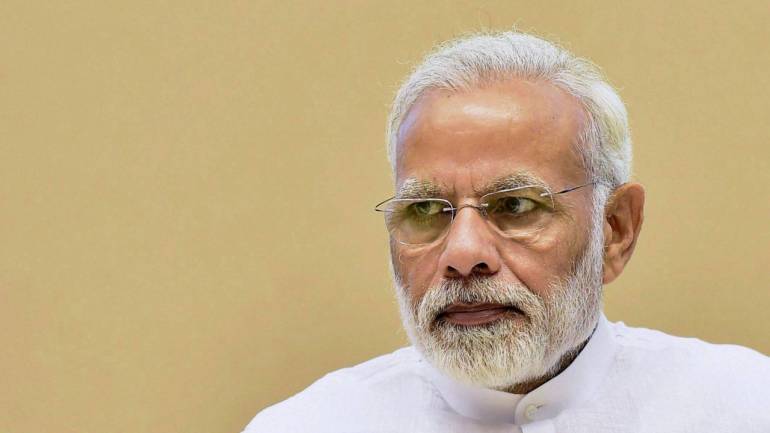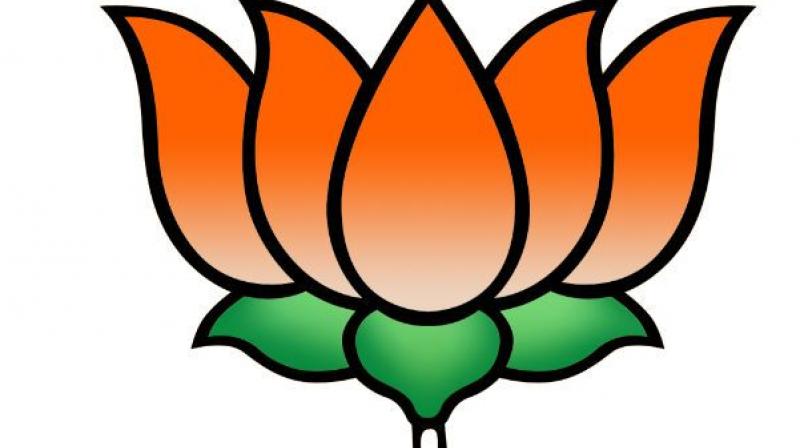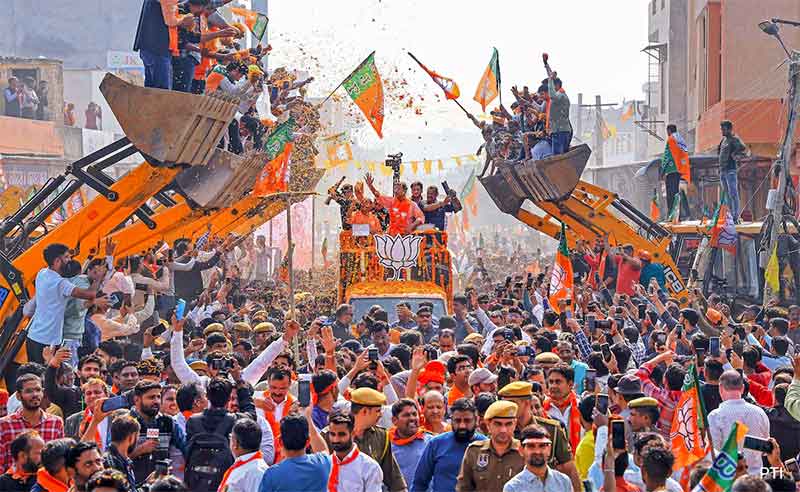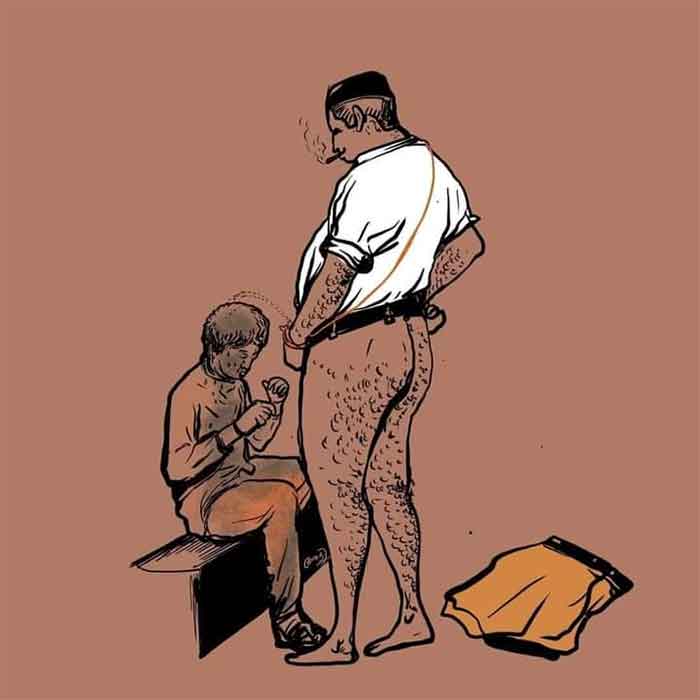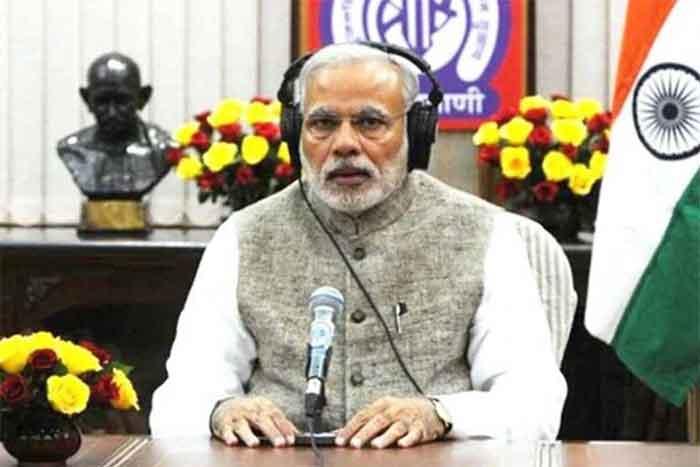
During his speech in the Indian Parliament’s Lok Sabha, or Lower House, on Feb 9, Prime Minister (PM) Narendra Modi spoke about ‘Foreign Destructive Ideology’ plaguing the country, and the need to protect ourselves from it. This seems to be in reference to the expression of support for the farmers protesting around Delhi for the last two and a half months, and of concern about them being barricaded off and being denied the supply of water, internet and electricity for the last couple of weeks, by a spate of international celebrities on social media platforms. A day earlier, in election campaign speeches in the states of West Bengal and Assam, Modi had repeatedly made the seemingly baseless allegation that there is an international conspiracy to defame India and spoil its image, by attacking India’s identity linked with tea and its tradition of yoga.
Earlier last month, the Indian Ministry of External Affairs, too, had, in an unprecedented step, directly addressed these social media posts by private individuals by releasing a strongly worded statement that termed these comments a consequence of efforts by vested interest groups to “mobilize international support against India”. Meanwhile, Indian External Affairs Minister S. Jaishankar wrote on his Twitter account that India has the self-confidence to hold its own and push back against motivated campaigns targeting the country, and Indian Home Minister Amit Shah posted on his Twitter page that no propaganda can deter India’s unity, stop it from attaining new heights or decide its fate, and that India stands united to achieve progress.
Clearly, some innocuous, run-of-the-mill social media comments by some non-political private actors have rattled our Union Government so much that they all have not only pointedly responded to them, but also painted them as part of some larger conspiratorial design against India itself. Modi, Shah and Jaishankar have all, in their statements, implored citizens to stand united and push back, implying that the impugned social media comments were intended to divide Indians in some manner.
That the top functionaries of the Indian Union Government are pushing a literal conspiracy theory without any evidence is concerning. To anyone who has been paying attention to the Indian political space over the last few years, though, this reaction is not entirely unexpected.
The BJP’s track record of pushing conspiracy theories since 2014
Members of the ruling Hindu nationalist Bharatiya Janta Party (BJP) have been openly pushing myriad conspiracy theories ever since their party won a majority in the Lok Sabha elections and formed the government in 2014.
The specter of foreign conspiracy itself is hardly being used for the first time. The farmer’s movement itself has been denunciated by several BJP legislators, such as Union Minister Raosaheb Danve, as being driven by Pakistan and China. Several BJP associates like its IT Chief Amit Malviya, national general secretary Dushyant Kumar Gautam, and Member of Parliament Jaskaur Meena, have falsely accused the protests of being staged by Khalistani sympathizers; this claim was also made by the Attorney General K.K. Venugopal before the Supreme Court of India.
If we go back a few months to October 2020; in the backdrop of the spontaneous outrage and protests over the horrifying gang rape and murder of a Dalit teenager and the terribly insensitive way in which the entire case was handled by the Uttar Pradesh (UP) State Government, its BJP Chief Minister Adityanath blamed Opposition parties and “anti-national” elements with foreign funding for trying to destabilize the state, and his government even began a probe into an alleged international conspiracy by foreigners to defame the government and foment caste violence.
Let us go a further few months back. In February 2020, when the anti-Citizenship Amendment Act (CAA) movement was at its peak in different parts of the country, Modi, in a speech, described the protests as a conspiracy by the opposition parites Indian National Congress (INC) and the Aam Aadmi Party to destroy national harmony and engage in “politics of hate”. Later that month, Surendra Singh, a BJP state legislator from UP, described the anti-CAA protests as a global conspiracy by Muslim countries to divide the country, and Giriraj Singh, a BJP Union Minister, accused Pakistan of conspiring to foment the anti-CAA protests in Delhi.
In September 2018, another Union Minister, BJP’s Gajendra Singh Shekhawat, had dismissed the INC’s questioning of the controversial Rafale jet fighter deal as part of an international conspiracy against India to defeat PM Modi in the 2019 Lok Sabha elections. Then-Union Defence Minister Nirmala Sitharaman, too, had alleged that there was an “international dimension” to the INC’s “smear campaign”.
Earlier in that year, the Pune city police, in the then-BJP run state of Maharashtra, had charged the academics and activists arrested in the Bhima Koregaon case of being part of a grand Maoist conspiracy to assassinate PM Modi and overthrow the government using weapons procured from Russia and China; this claim has been repeated by BJP spokespersons. Till date, the trial in the case is yet to commence, and the detainees have been languishing in jail for as long as over two years in some cases. (Earlier this month, an investigation by an American digital forensics analysis agency revealed that the evidence of the conspiracy to assassinate Modi found in the computer of one of the detained activists was planted by a hacker.)
In 2017, BJP spokesperson Sambit Patra had said at a seminar organized by the Delhi BJP, in reference to the outrage over the increasing incidents of lynching of members from minority religious communities, that a conspiracy was being hatched against Hindus, PM Modi and the nation to gain political mileage in the name of intolerance and lynching incidents, due to the government’s regulation of foreign funding of NGOs.
In 2016, Modi had, while addressing a farmers’ rally in the stat of Odisha, claimed that foreign-funded NGOs and black-marketeers were conspiring to defame him and destabilize the Union government for being regulated and held accountable.
Add to this the regular invocation by the BJP of the demonstrably false bogey of an international conspiracy behind propagating ‘love jihad’ (which has now been criminalized in UP by an ordinance, with several other BJP-ruled states promising to go the same route); the constant references to the multi-purpose ‘tukde tukde gang’ [literally: a gang that wants to break India into fragments] and ‘urban naxals’ by high-ranking Union Ministers and BJP officials to explain away any organized criticism of or dissent against the Union Government’s policies (in spite of the Indian Home Ministry admitting in response to a Right to Information application that it “has no information concerning tukde-tukde gang”), to which lexicon Modi added a new invective earlier this month during his speech in the Indian Parliament’s Rajya Sabha, or Upper House: andolanjivi parjivi [literally: protesting parasites]; the justification of “protecting national interests from foreign funds” given by Indian Union Minister of State for Home Affairs Nityanand Rai in the Parliament for passing the Foreign Contribution Regulation (Amendment) Act, 2020 that severely curtails the funding of NGOs by foreign funds; and one gets the blueprint of the BJP’s preferred troubleshooting approach: when in crisis, deflect blame on an imaginary enemy conspiring against the government’s agenda, color itself as a self-righteous, noble victim that is carrying out the hard work of ‘developing’ the nation, and offer scant, if any, basis for such claims. After all, despite repeated assertions over the years of international conspiracies against India and its Union Government, there has been no substantive investigation carried into these claims or evidence unearthed by any of India’s investigative agencies or by anyone in the BJP. We are neither told who these international powers conspiring against India are (Pakistan and China are routinely and vaguely mentioned since they are our perpetual ‘enemy’ states), nor why they’re conspiring against us, nor how they exactly plan to break up the country.
One would imagine that by going to the foreign conspiracy well so often, the BJP would eventually run it into the ground, turning it into a caricature. Contrarily, this has become so normalized that now the default strategy of anyone associated with or supporting the BJP to respond to criticism of the party’s policies is to question the critics’ motives and implicate them as actors in international machinations.
While nefarious and dangerous to our democratic ethos, this is neither novel nor original.
The reliance on the ‘foreign hand’ conspiracy by leaders in India and across the world
The conspiracy theory of the ‘foreign hand’ has been a fixation through much of India’s political history, from former PM Indira Gandhi blaming it for the protest movement against her government that had sprung across the country between 1972 and 1975 in the lead-up to her declaration of the Emergency (now remembered as the darkest days of democracy in India), and former PM Rajiv Gandhi faulting it for impeding India’s development, to the previous PM Dr. Manmohan Singh accusing NGOs funded by US and Scandinavian countries for fomenting the popular opposition to the setting up of a nuclear power plant in Koodankulam, Tamil Nadu, and to an INC Parliamentarian seeing a BJP-created politically-motivated conspiracy with foreign handlers behind the India Against Corruption movement of 2011.
This canard has also been a tool of choice of several contemporary authoritarian leaders across the world: from Turkey’s President Recep Tayyip Erdogan complaining about an international conspiracy to limit Turkey’s power and influence abroad and damage its economy, North Korea shrugging off scrutiny of its atrocious human rights record by the United Nations as interference in its internal matters, and Brazil’s President Jair Bolsanaro fanning the enduring conspiracy theory in the South American nation of an international communist plot to destroy Brazil, to Russia’s President Vladimir Putin-led government using the pretext of foreign meddling to quell environmental and political protests, former US President Donald Trump’s legal team claiming that a vast international conspiracy had fixed the last US Presidential elections for the winning candidate and current US President Joe Biden (this was just one of the numerous conspiracy theories Trump floated before and during his presidential term), and to Philippines President Rodrigo Duterte accusing independent human rights and media organizations of plotting to oust his government, show me an ultranationalist authoritarian leader, and I’ll show you a popular hoax about foreign powers trying to destabilize that leader’s government.
Ultranationalism relies on conspiracy theories about imaginary enemies
It is clear why this is such a frequently used rhetorical device. Ultranationalism, after all, hinges on a steady supply of alleged enemies to settle scores against, and a mythical emphasis on an organic unity between a charismatic leader and the nation. When you paint your political opponent as an unpatriotic, foreign-sponsored bad faith actor out to destroy the nation, you don’t have to deal with substantive questions of policy raised by them. You end up distracting the public attention from the real issue at hand by putting up an alarmist scenario about the stability of the government, and create a narrative debating the legitimacy of the opposition critique, rather than about your own policy failures.
In such a context, it becomes easy to implore citizens to rally and stand together against these amorphous evil foreign forces, to stop criticizing the government and put up a united front because doing otherwise would be playing into the hands of these international agents of chaos, to put up with relatively minor material inconveniences in the face of a larger national existential threat, and adopt a uniform political ideology in support of the government (which is projected as equivalent to the nation). All these are empty words, of course, that dissolve at the merest of rational scrutiny. However, when repeatedly advanced by charismatic, popular leaders and echoed by an entirely pliant news media system, these claims start appearing credible to a large number of people in our post-truth world. Little wonder, then, that the BJP Government and Modi enjoy massive popularity across the country and keep stringing electoral victories in spite of a track record of costly policy failures.
The hazard of the government perpetuating conspiracy theories
However, a constant flooding of the political narrative with blatantly false conspiracy theories has deleterious consequences.
Dehumanizing your critics as agents of a shadowy anti-national international plot ends up legitimizing not only the dismissal of their legitimate grievances by the public, but also punitive actions, including the threat of violence by non-State vigilante actors, against them. Polarized consumers of these conspiracy theories don’t just accept the silencing of these protestors as appropriate, but even as part of their duties as patriotic citizens. We have already seen rumblings of the same in India over the past few years, be it the attempted shootings by armed young men at the anti-CAA protestors in Delhi last year, exhorted by BJP Ministers and leaders leading chants of ‘desh ke gadaaron ko, goli maaro saalo ko [shoot the bloody traitors of the country]’, or the recent stone-pelting by purported locals at the Singhu border of Delhi at protesting farmers. Events from last month at the Capitol Hill in Washington DC offer a chilling vision of how easily even a few hundred citizens fed on a constant drip of false conspiracy theories can upend fragile democratic institutions when, in their alternative realities, their supreme leader is wronged and their nation threatened.
With a ruling party leadership that seemingly sees every problem as a PR problem and doesn’t care about anything but the optics, India is headed down a perilous path. The Union Government would be better served to focus on governance and the politics of progress that they ostensibly espouse, as opposed to image management. After all, the best, albeit most difficult way, of managing optics is to resolve popular grievances and keep citizens happy.
Vineet Bhalla is a Delhi-based lawyer.
GET COUNTERCURRENTS DAILY NEWSLETTER STRAIGHT TO YOUR INBOX

